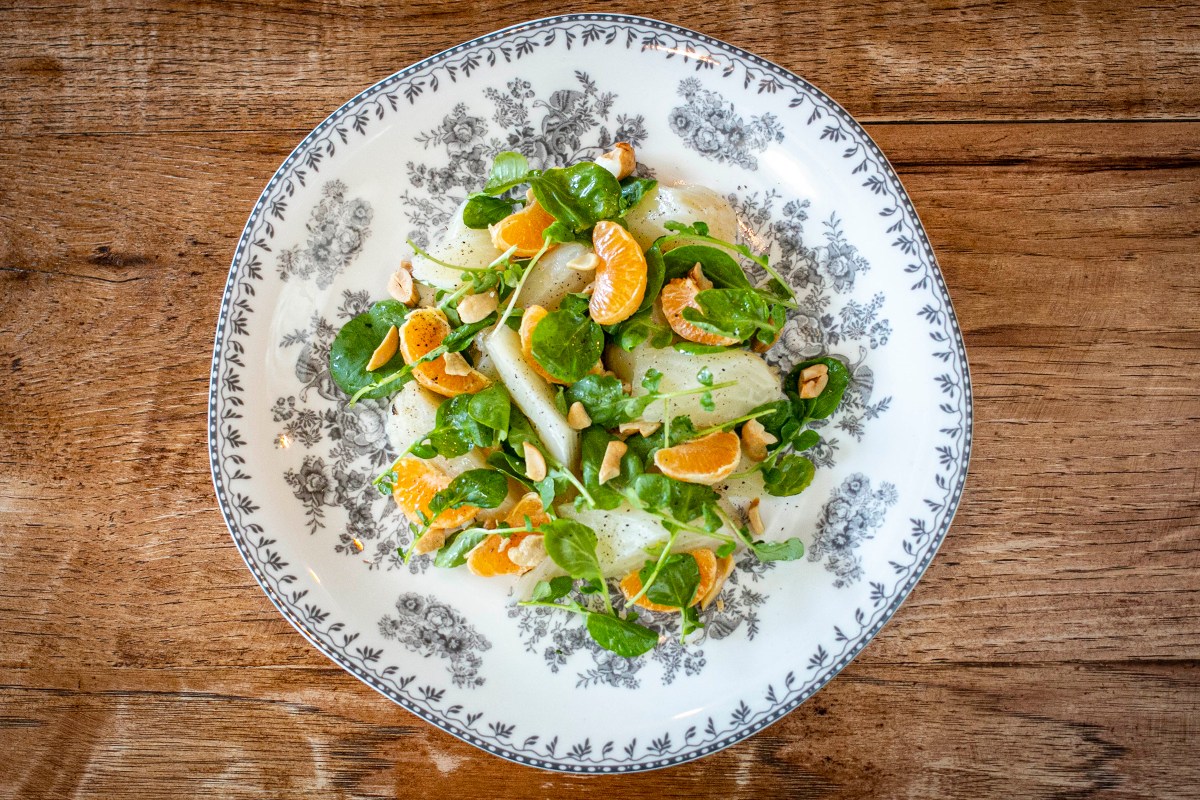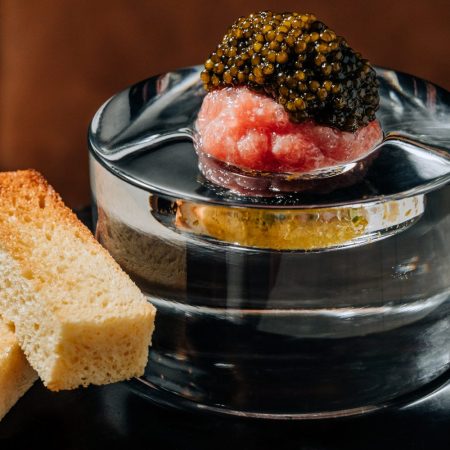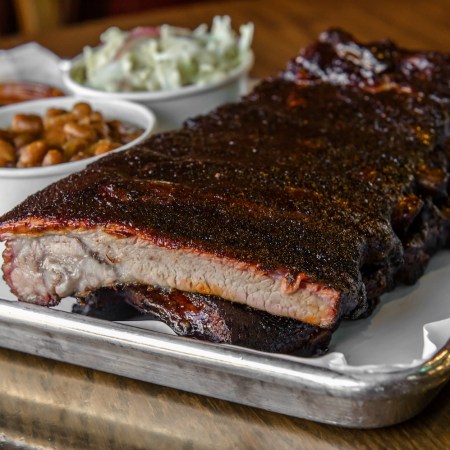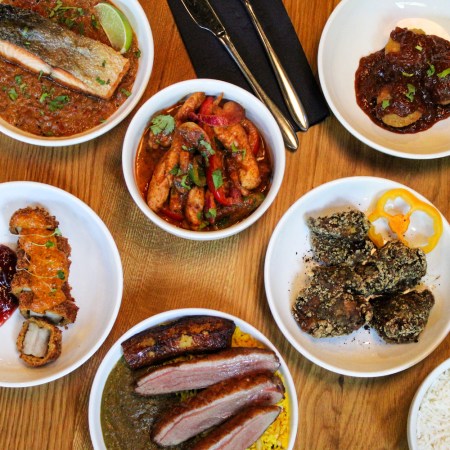Virtue, according to Chicago-born Erick Williams, means “of high moral standard,” and it’s the mindset behind the James Beard-nominated chef’s Hyde Park restaurant of the same name. Virtue opened back in November 2018 and oozed hospitality and kindness from the outset, with Williams serving as a mentor to many of his young protégés and regularly stepping out of the kitchen to converse with patrons during service. It’s no surprise that, once the pandemic hit, he quickly pivoted to feeding frontline hospital workers, offering forgivable loans to his staff, and selling comforting soul food dishes family-style.
“I’m a man of faith,” says Williams. “And virtues come up often in practices of faith. But in spite of what your personal belief is, decency is a virtue; hospitality and kindness are virtues. They’re everyday principles that we should all aspire to.”
In addition to being kind, however, Virtue also seeks to be bold. Williams’ contemporary, progressive approach is the Southern, soul food answer, he says, to the evolution and daring that have defined other world cuisines for the past three decades.
“I guess what I would really venture to state is: Why hasn’t Southern food progressed over the years?” he says. “We know French has been around the world and back. Italian food is pushed to its limits. Japanese cooking. Thai cooking. All forms of Asian cooking are continuing to be pushed.”
Southern food, meanwhile, “is still a lot of the same,” Williams adds. And that’s exactly what he’s trying to change.
At Virtue, the menu features a combination of the familiar and the innovative: biscuits are served with pimento cheese, and chicken gumbo comes with Carolina gold rice, but eggplant is paired with white beans, harissa, and peanuts, and toasted sourdough is smeared with cashew butter and tomato jam. “We’re not trying to cook our grandmothers’ recipes exactly the way they are all day every day,” says Williams. “There are some things that are tried and true, that aren’t broke, and we won’t fix ‘em. And then there are some other things that aren’t broke, and we’re gonna break them!”
To do so, Williams relies heavily on his imagination, constantly asking himself “What if?” or “What could have been?”
“If Africans influenced the food that we have, and how we grow that food, then what would have happened if we had had more of their influence?” he asks. “If we want to talk about chittlins or ham hocks or pig tails or pig ears, and then ribs and rib tips — all scrap parts –—are we ever going to talk about the pork chop? Or the loin? Or the ham? And how might that particular cut be seasoned?” The answer may just as easily be remoulade or ranch as Egyptian dukkah or Tunisian harissa.
Williams also seeks to right some perceived wrongs committed through the years, such as mushy, bitter veggies.
“Almost everybody has a story of something that was overcooked,” he says. “When something is presented the wrong way, much like people, it’s off-putting. It may not be the sum of the individual, more or less, and it may not be the sum of the ingredients.”
In an attempt to correct this pervasive stereotype, he takes a novel approach to beets, seeking to cultivate surprise – and succeeding.
“We’re astounded by the number of people who are like … ‘Oh my God. I can’t believe these are beets,’” he says, of those who claim to “hate” the root veggie. “I’m like, no, you don’t hate beets. You just didn’t know you liked them! Because you don’t go from hate to love.”
In his salad, beets are first roasted and then pickled in a slightly sweet brine, showing off multiple facets of flavor and texture. Paired with crunchy cashews, acidic tarragon vinegar, and sweet tangerines, it’s a delightful appetizer or side dish that just so happens to be plant-based – though that wasn’t Williams’ aim. Says the chef: “I just think about delicious!”
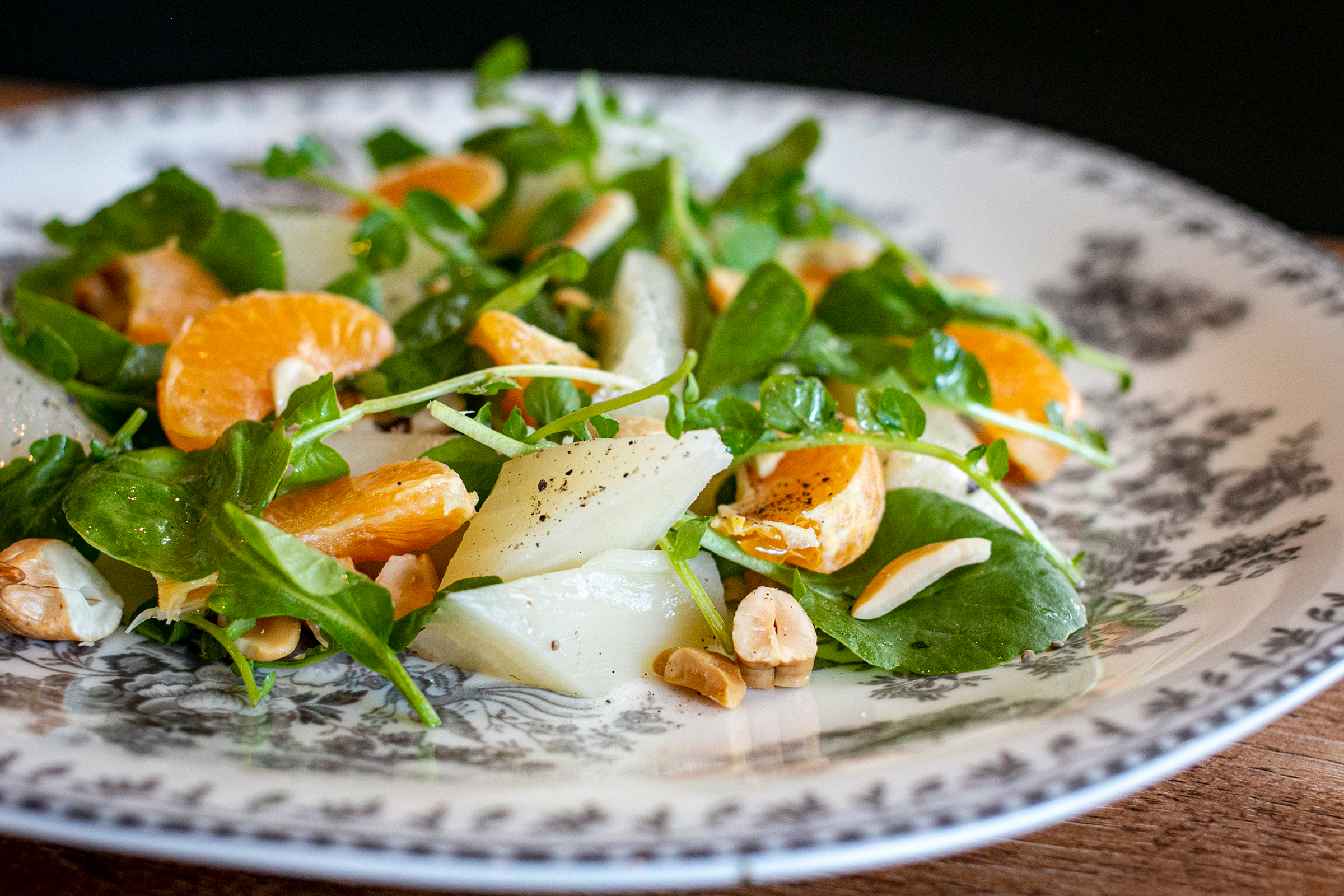
Chef Erick Williams’ Pickled Beet Salad Recipe
Ingredients
- 6 medium beets, cleaned with 1-inch stem remaining
- ¼ cup olive oil, divided
- 1 cup tarragon wine vinegar
- 1½ teaspoons kosher salt
- ½ cup sugar
- 1 cup water
- 3 tablespoons cashews
- 3 tangerines, peeled and separated in segments
- 1 tablespoon sherry vinegar
- 1 tablespoon orange juice
- Handful of watercress
Preheat the oven to 400 degrees. In large bowl, toss the beets and 2 teaspoons olive oil and place in a foil pouch. Roast in the oven for 40 minutes.
Remove the skin from the roasted beets and slice thinly, placing in a sealable, non- reactive container. In small pot, boil the wine vinegar, kosher salt, and sugar, and pour over beets. Tightly seal and place in the refrigerator 3-7 days.
Cut the pickled beets in quarters or eighths (depending on the size of the beets) and toss in a bowl with the remaining olive oil, sherry vinegar, and orange juice. Spoon the beets onto large platter, reserving the remaining dressing.
Toast the cashews in small sauté pan with a touch of olive oil over medium heat until fragrant. Season with pinch of salt and allow to cool before chopping.
Spread the watercress and tangerine segments over the beets and drizzle with the remaining dressing. Season with salt and pepper to taste.
Top with toasted cashews and serve.
Serves 4.
Every Thursday, our resident experts see to it that you’re up to date on the latest from the world of drinks. Trend reports, bottle reviews, cocktail recipes and more. Sign up for THE SPILL now.
